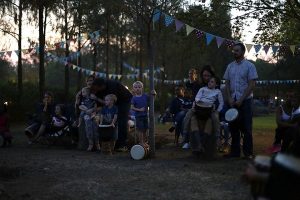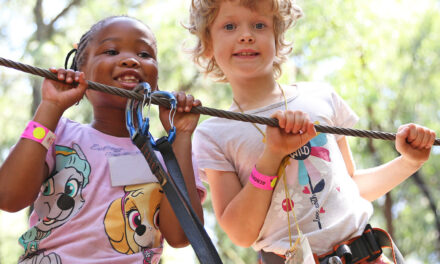When parents congregate around a Saturday braai, next to the sports field, wherever, conversation inevitably takes a turn towards schooling. I have come to realise over the past few years that most parents sense that there is something potentially wrong with our current CAPS-system, in the same way our American counterparts feel about standardised testing and the whole “No child left behind”-campaign. Most parents might even agree that the intentions behind these systems are good, but the problem lies in the execution.

But there is hope yet; alternatives within the system.
A while ago a school in Fish Hoek (Cape Town) decided to scrap homework completely, an ostensibly radical decision in South Africa. The principal was quoted as saying: “They have to take this ridiculous homework load home with them, which was having no benefit to the child’s performance. We could see no (discernible) benefit to children who did the homework, versus those who didn’t.” “The research was saying that children have to have fun. We have to play. And we suddenly realised that we lost the fun of schooling.”
In Finland, educators pondered this ‘radical approach’ in the 70’s. They have completely transformed the way they view education over the past 40 years and the results speak volumes.
Some very interesting facts about Finnish schools:
• Formal academic instruction only starts the year a child turns 7.
• Children are not ever given more than half an hour’s homework.
• Teachers are addressed by their first names.
• Finnish schools have longer, and more, break times.
• Children are put together in classes irrespective of their academic abilities.
• There is no standardised testing (only once, at the age of 16).
And since the turn of the millennium, the Fins have managed to score very high, or even top rankings on various international education indexes.
Dr. Rudolf Steiner discovered it even earlier, in the 1920’s, when he outlined a revolutionary curriculum (at the time) for schools and founded the first Waldorf school in Stuttgart, Germany. Waldorf schools are the biggest international education system with almost 1 100 schools in 62 countries worldwide, 18 of which are in South Africa.
Some interesting facts about our Waldorf school:
• Formal academic instruction only starts the year a child turns 7.
• Very little, if any, homework is given.
• We value free play : our children have longer break times and an abundance of learning activities happen outside the classroom.
• Children are put together in classes irrespective of their academic abilities.
• Teachers are addressed by their first names.
• We do not write any form of standardised tests and our children only write their first exams at the end of Grade 9.
(Notice the similarities with the Fins there?)
There are many more differences between Waldorf schools and mainstream schools in South Africa, and yet when Waldorf-children transfer to other schools (for whatever reason) they adapt exceptionally well. Despite our lack (or absence) of homework, tests or exams.
At The Waldorf School, the curriculum is driven by the developmental stages of a child. Teachers respect, lead and help shape each child as an individual. The saying “it takes a village to raise a child” comes to mind when I look at my children’s school. Our school truly is a community of loving, encouraging and deeply devoted teachers, parents, guardians and grandparents raising happy children, well able to face life’s challenges as balanced adults of the future.
As parents we are responsible to critically review any facet of our children’s lives that will have a lasting impact and education certainly is a key facet. Children cannot rebel against a system they do not perceive to be harmful, but as adults we might recognise their rebellion in how they react to the system: stress, depression, behavioural problems, and who knows, maybe even the increase in ADD/ADHD diagnoses.
There is always an alternative.
(Written as a reminder to especially our grade R parents Why We Waldorf.)


